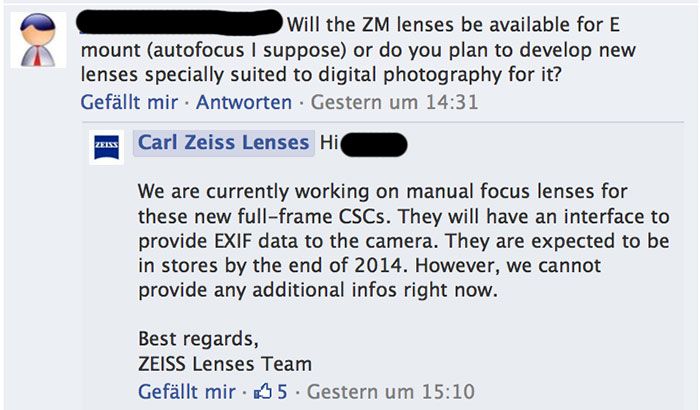Firstly, rooz, I started this thread because there was no mention of this camera here even though it has appeared almost everywhere you might look for camera news and information, not because I am it's sole supporter, although that seems it might be not far from the case on this forum.
photohiker wrote:there seems to be an awful lot of mirrorless cameras about, even here.
rooz wrote:actually no there isn't. not in comparison to dslr. it represents a fraction of camera sales. your logic is similar to looking out the window one day and seeing 20 yellow cars and then making the assumption that yellow car sales are booming.
That is a convenient distraction. There are millions of mirrorless cameras sold and most if not all at the expense of DSLR sales. The car analogy falls on it's head when you think of the commodore and corolla a few years ago. The commodore became the anachronism and the corolla took the sales lead. This was a predictable outcome, yet the large car manufacturers failed to change and the market did the rest.
rooz wrote: you suggested that this a7 would be a threat to Nikons dslr sales and the current evidence just doesn't back that up.
I'm suggesting that the A7 is a threat to Nikon and Canon FF DSLR sales, not all DSLR sales. Before the A7, the choices were Canon, Nikon, Sony DSLRS and basically nothing else. How is the introduction of a FF mirrorless with a choice of sensors not a threat to that market? I'm suggesting threat, not victory. Victory depends on how the situation plays out, and that remains to be seen.

So mirrorless currently runs about 20-25% of DSLR sales and is far less volatile. These are significant numbers, we're not talking about an irrelevant market segment here. DSLR is a mature market yet it's sales are up and down like a yoyo:
Things are not a lot better when it comes down to DSLR shipments. CIPA says that 2,600,765 cameras have been sold in Q1 2013, 23.2% less than in Q1 2012 when 3,386,386 units were shipped.
Lots of statistics quoted in that article to play down the DSLR losses and amplify the emerging mirrorless market losses which would be expected to be more turbulent in any case, but over that same period, the mirrorless drop was 18.5%.
Yes, the camera industry faces challenges, not for the first time.
rooz wrote:still you don't seem to want to address the point of FX = FX size lens'. hows that gonna work as a primary system camera ? and what about native lens range ? hows that gonna work out ? the roadmap is skinny as hell. and lets face it, sony don't even know what they are going to do.
I'm not seeing the problem with FF lens sizes on a FF camera? The camera size and weight has been reduced dramatically. The weight saving of the A7 over the only other 36MP camera (D800) is
more than half. You can have two A7's for less than the weight of one D800. The lens length for native lenses also gets a significant reduction. Not seeing this as a problem. As a system camera, the total weight and bulk is significantly less. Re lens roadmap we don't yet know what Sony are going to do past the first few lenses because they have not released the details. Perhaps as you suggest, they don't know, or perhaps they know but are not releasing the details for competitive and operational reasons. I agree their native lens release history for the NEX has not been fantastic.
Deleting a smart hotshoe is hardly the same as deleting an entire range of cameras and lenses, is it? I refer you to your yellow car analogy.
RX1
rooz wrote:again, it depends on the context. is it a flop in performance ? mostly not. is it a big seller ? absolutely and unequivocally the answer is no...so in that context it is more than a flop, its a bloody disaster.
Tough crowd...
FF Fixed lens cameras. What have we got? Leica and ??? RX1, RX1R.
Sony
recently revealed RX1 production was at full capacity with sales at somewhere less than 10,000 units per month. For a FF fixed lens digital, that is now probably the market leader. Doesn't sound like a flop to me, and definitely not a disaster. What sales numbers do you think would be required to decide that the camera is not a disaster?
I'm not suggesting that everything is rosy in the camera market, but it's easy to see who is trying to energise the market. Oly and Fuji have trashed much of their P&S
models because of the onslaught of smartphones and they have instead headed into quality mirrorless cameras. Sony basically owns the sensor market so they make a margin on most cameras sold. They are in a very good position to emerge from the market turmoil well and appear to be actively pursuing that goal in contrast to the established DSLR manufacturers.








